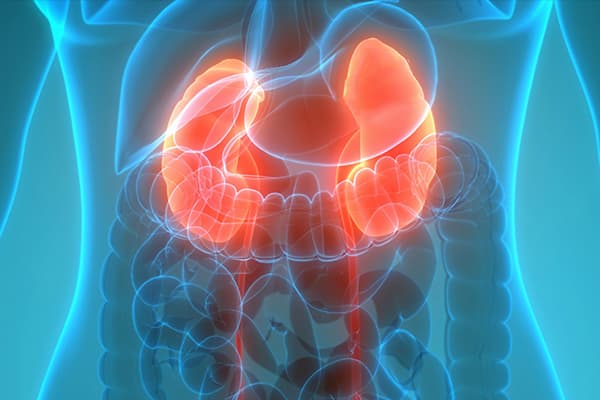Synthetic Kidney Disease Patient Records Dataset
Synthetic EMRs & Patient Records
Tags and Keywords
Trusted By




"No reviews yet"
£29.99
About
This synthetic Kidney Disease Dataset is designed for educational and research purposes in the fields of data science, healthcare, and public health. The dataset contains essential features such as age, gender, medical history, lifestyle factors, and various health metrics to study and predict the onset and progression of kidney disease.
Dataset Features
- patient_id: Unique identifier for each individual in the dataset.
- age: Age of the individual.
- gender: Gender of the individual (e.g., Male, Female).
- ethnicity: Ethnic background of the individual (e.g., Caucasian, Asian).
- socioeconomic_status: Socioeconomic status of the individual (e.g., High, Middle, Low).
- education_level: Highest level of education attained by the individual (e.g., High School, Bachelor's).
- bmi: Body Mass Index (BMI) of the individual.
- smoking: Whether the individual is a smoker ("Yes" or "No").
- alcohol_consumption: Frequency of alcohol consumption (e.g., daily, weekly).
- physical_activity: Level of physical activity (numeric value).
- diet_quality: Quality of the individual's diet (numeric value).
- sleep_quality: Quality of the individual's sleep (numeric value).
- family_history_kidney_disease: Whether the individual has a family history of kidney disease.
- family_history_hypertension: Whether the individual has a family history of hypertension.
- family_history_diabetes: Whether the individual has a family history of diabetes.
- previous_acute_kidney_injury: Whether the individual has a history of acute kidney injury.
- urinary_tract_infections: Whether the individual has a history of urinary tract infections.
- systolic_bp: Systolic blood pressure value.
- diastolic_bp: Diastolic blood pressure value.
- fasting_blood_sugar: Fasting blood sugar level.
- hb_a1c: Hemoglobin A1c level.
- serum_creatinine: Serum creatinine level, an indicator of kidney function.
- bunlevels: Blood urea nitrogen (BUN) levels.
- gfr: Glomerular filtration rate, an indicator of kidney function.
- protein_in_urine: Amount of protein present in the urine.
- acr: Albumin-to-creatinine ratio in urine.
- serum_electrolytes_sodium: Sodium levels in serum electrolytes.
- serum_electrolytes_potassium: Potassium levels in serum electrolytes.
- serum_electrolytes_calcium: Calcium levels in serum electrolytes.
- serum_electrolytes_phosphorus: Phosphorus levels in serum electrolytes.
- hemoglobin_levels: Hemoglobin levels.
- cholesterol_total: Total cholesterol level.
- cholesterol_ldl: Low-density lipoprotein (LDL) cholesterol level.
- cholesterol_hdl: High-density lipoprotein (HDL) cholesterol level.
- cholesterol_triglycerides: Triglycerides level in the blood.
- aceinhibitors: Whether the individual is on ACE inhibitors.
- diuretics: Whether the individual is on diuretics.
- nsaids_use: Whether the individual uses NSAIDs.
- statins: Whether the individual is on statins.
- antidiabetic_medications: Whether the individual is on antidiabetic medications.
- edema: Whether the individual experiences edema (fluid retention).
- fatigue_levels: Level of fatigue experienced by the individual.
- nausea_vomiting: Whether the individual experiences nausea or vomiting.
- muscle_cramps: Whether the individual experiences muscle cramps.
- itching: Whether the individual experiences itching.
- quality_of_life_score: A score indicating the individual's overall quality of life.
- heavy_metals_exposure: Whether the individual has been exposed to heavy metals.
- occupational_exposure_chemicals: Whether the individual has been exposed to chemicals at work.
- water_quality: Quality of the water consumed by the individual.
- medical_checkups_frequency: Frequency of medical checkups attended by the individual.
- medication_adherence: Adherence to prescribed medications.
- health_literacy: The individual’s understanding of health information.
- diagnosis: The final diagnosis of the individual, indicating whether they have kidney disease or not.
Distribution


Usage
This dataset is ideal for a range of applications:
- Kidney Disease Prediction: Build machine learning models to predict the likelihood of kidney disease based on contributing factors.
- Risk Factor Analysis: Analyze which factors (e.g., medical conditions, lifestyle choices) are associated with higher risks of developing kidney disease.
- Kidney Function Analysis: Study the relationship between kidney function indicators (e.g., serum creatinine, GFR) and other health metrics.
- Personalized Care Planning: Use insights from the data to guide healthcare professionals in developing tailored care plans for kidney disease patients.
- Public Health Research: Investigate trends and correlations in kidney disease prevalence across different demographics and lifestyle factors.
License
CC0 (Public Domain)
Who Can Use It
- Data Science Practitioners: For practicing data preprocessing, classification, and regression tasks.
- Healthcare Researchers: To explore the relationships between lifestyle factors, medical conditions, and kidney disease.
- Public Health Analysts: To analyze kidney disease prevalence and risk factors in different populations.
- Healthcare Professionals: For guiding diagnosis and treatment plans based on data-driven insights.
- Policy Makers: To make informed decisions related to kidney disease prevention and care.
Loading...
£29.99
Download Dataset in CSV Format
Recommended Datasets
Loading recommendations...
